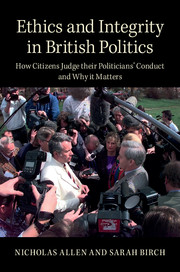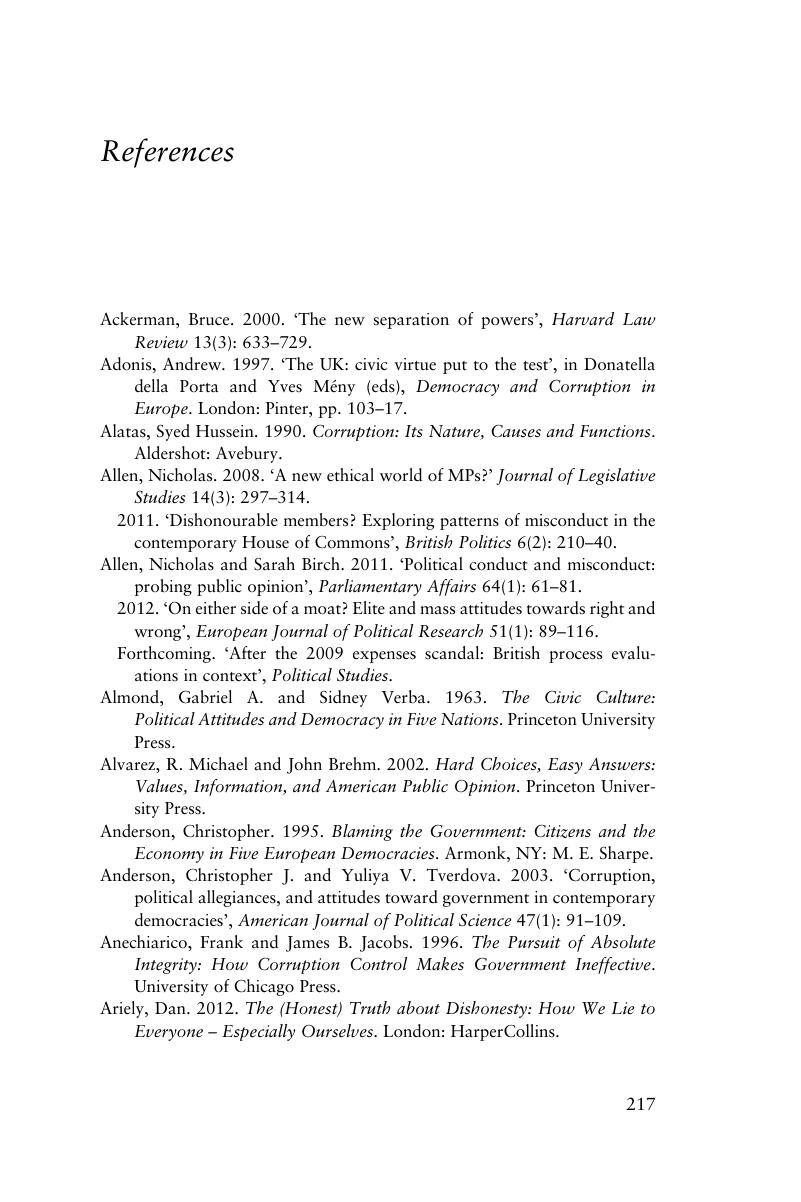 Ethics and Integrity in British Politics
Ethics and Integrity in British Politics Book contents
- Frontmatter
- Dedication
- Contents
- List of Figures
- List of Tables
- Preface and acknowledgements
- 1 Why study perceptions of politicians’ conduct?
- 2 Thinking about political ethics and conduct
- 3 Ethics and misconduct in British politics
- 4 Expectations and the scope of ethical judgements
- 5 How people judge political conduct
- 6 What people think of their elected politicians
- 7 The political effects of ethical evaluations
- 8 Changing public perceptions: problems and remedies
- 9 Concluding remarks
- Appendix: data and variable construction
- References
- Index
- References
References
Published online by Cambridge University Press: 05 February 2015
- Frontmatter
- Dedication
- Contents
- List of Figures
- List of Tables
- Preface and acknowledgements
- 1 Why study perceptions of politicians’ conduct?
- 2 Thinking about political ethics and conduct
- 3 Ethics and misconduct in British politics
- 4 Expectations and the scope of ethical judgements
- 5 How people judge political conduct
- 6 What people think of their elected politicians
- 7 The political effects of ethical evaluations
- 8 Changing public perceptions: problems and remedies
- 9 Concluding remarks
- Appendix: data and variable construction
- References
- Index
- References
Summary

- Type
- Chapter
- Information
- Ethics and Integrity in British PoliticsHow Citizens Judge their Politicians' Conduct and Why it Matters, pp. 217 - 231Publisher: Cambridge University PressPrint publication year: 2015


